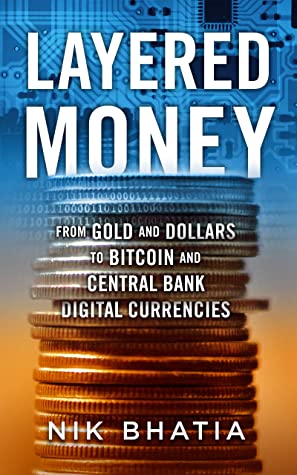In a recent interview with Lex Fridman, Anthony Pompliano (Pomp) described the books he found useful when learning about Bitcoin.
Whilst I don’t agree with everything Pomp says, I do find his ideas interesting, so have made an effort to list down the books he recommended below.
#1 – The Bitcoin Standard
The Bitcoin Standard – The decentralized alternative to central banking by Saifedean Ammous
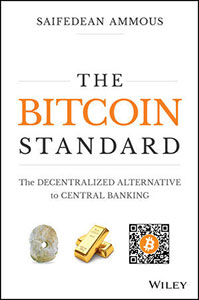
Pomp suggests people start with this book, because “it lays out the picture nicely”. It focuses on:
- Brief history of money
- What is money – the need for sale-ability over time, space and scales
- What stock to flow is, and why it’s important
- The problems with government issues “fiat” money ($, €, ¥, £)
- How things were previously the gold standard
- How Bitcoin fits in
Personally I’ve read it, found it useful, but acknowledge it’s a heavy read. For people with less time, who want a quicker overview, I recommend this blog post:
- The Bullish Case for Bitcoin by Vijay Boyapati
- Also available in audiobook form on SoundCloud here, read by a professional voice actor
#2 – Bitcoin: Hard Money You Can’t F*ck With
Bitcoin: Hard Money You Can’t F*ck With – Why Bitcoin will be the next global currency by Jason A Williams
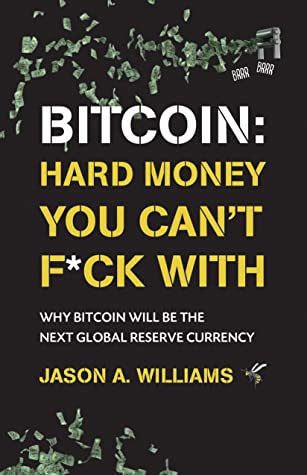
Pomp mentioned this book was written by a friend of his, but didn’t mention much more, so will leave the blurb description below:
Book intro:
No-one controls it. No governments, no companies, no central banks, no money printing. It’s a revolution as big as the internet. And it’s never been hacked.
Not only was bitcoin the best-performing asset on the planet in 2020, it quietly established itself as the next global reserve currency as central banks around the world desperately printed their money into oblivion.
Hard Money You Can’t F*ck With explains bitcoin in simple, readable terms and maps out how this ‘magic internet money’ will grow into the best form of money we’ve ever had.
Description via Goodreads
#3 – Layered Money
Layered Money – From Gold and Dollars to Bitcoin and Central Bank Digital Currencies by Nik Bhatia
Pomp didn’t describe what sets Layered Money apart from the rest, or why he mentioned it in particular, so will leave the blurb description below.
Nik Bhatia takes us into the origins of how money has evolved to function in a “layered” manner. Using gold as an example of this term, he traces the layers of this ancient currency from raw mined material, to gold coins, and finally to bank-issued gold certificates. In a groundbreaking manner, Bhatia offers a similar paradigm for the evolution of digital currencies. Bhatia’s analysis begins in Renaissance Florence with the gold Florin coin and a burgeoning banking culture, continues with the evolution of central banking, and concludes with a vision for the future of our international monetary system. As central banks around the world prepare to launch their own crypto-competitors, Bhatia illustrates how the invention of Bitcoin created a seismic shift in money and merged the monetary and cryptography sciences.
Description via Amazon.com
#4 – Bitcoin & Black America
Bitcoin & Black America by Isaiah Jackson
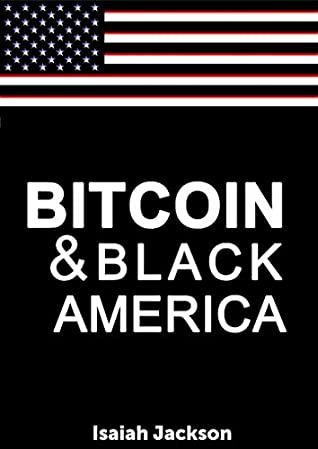
Book description:
Bitcoin and Black America is a dynamic new book that explores the synergy between black economics, Bitcoin and blockchain technology. The global financial system is changing and the digital revolution will not be televised.
We explore how to incorporate cryptocurrency in your business, job and educational institution. This book also outlines the need for separation from the racist banking system and a comprehensive list of black professionals actively working in the Blockchain industry.
Description via Goodreads
#5 – The Price of Tomorrow
The Price of Tomorrow – Why deflation is the key to an abundant future by Jeff Booth
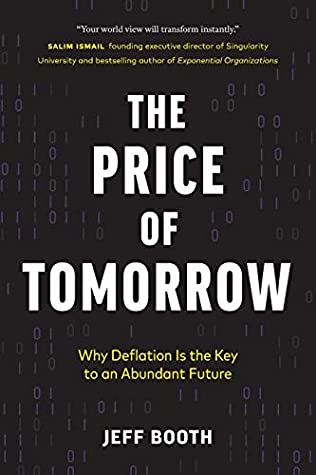
The price of tomorrow makes the case for a better and more prosperous world simply by accepting the natural order of falling prices and fast-improving technology. The book is entirely free of jargon, ideology, and politics, yet pulls no punches when it comes to describing the fiscal and monetary mess we’re in. But it is an optimistic book, with a message for every worldview: deflation is a good thing, it is inevitable, and we should embrace it rather than fight it!
Description via The Mises Institute
Non-Bitcoin Related
Next is Pomp’s #1 favorite book he’s ever read, that doesn’t mention a word about Bitcoin.
The Dao of Capital – Austrian Investing in a Distorted World
The Dao of Capital – Austrian Investing in a Distorted World by Mark Spitznagel
If this is Pomp’s #1 favorite book – it seems worth a read. I’ve personally added it to my “to read” list.
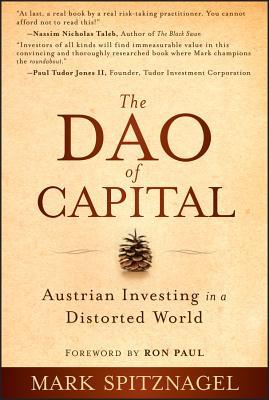
Spitznagel is the first to condense the theories of Ludwig von Mises and his Austrian School of economics into a cohesive and, as Spitznagel has shown, highly effective investment methodology. From identifying the monetary distortions and non-randomness of stock market routs (Spitznagel’s bread and butter) to scorned highly-productive assets, in Ron Paul’s words from the foreword, Spitznagel “brings Austrian economics from the ivory tower to the investment portfolio.”
The Dao of Capital provides a rare and accessible look through the lens of one of today’s great investors to discover a profound harmony with the market process–a harmony that is so essential today.
Description via Goodreads
When Breath Becomes Air
When Breath Becomes Air by Paul Kalanithi
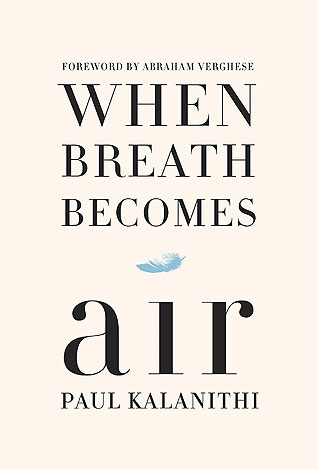
Written by a guy dying of cancer and dealing with his own mortality. Pomp found it helps focus one on time being scarce, and the importance of using time for enjoyment and happiness.
At the age of thirty-six, on the verge of completing a decade’s worth of training as a neurosurgeon, Paul Kalanithi was diagnosed with stage IV lung cancer. One day he was a doctor treating the dying, and the next he was a patient struggling to live. And just like that, the future he and his wife had imagined evaporated. When Breath Becomes Air chronicles Kalanithi’s transformation from a naïve medical student “possessed,” as he wrote, “by the question of what, given that all organisms die, makes a virtuous and meaningful life” into a neurosurgeon at Stanford working in the brain, the most critical place for human identity, and finally into a patient and new father confronting his own mortality.
What makes life worth living in the face of death? What do you do when the future, no longer a ladder toward your goals in life, flattens out into a perpetual present? What does it mean to have a child, to nurture a new life as another fades away? These are some of the questions Kalanithi wrestles with in this profoundly moving, exquisitely observed memoir.
Description via Goodreads
3 More Honorable Mentions
Next are 3 books Pomp found impactful when he was 20 years old, sitting in the desert Iraq. He says at the time, he didn’t implement any of the content, but it helped catalyze a shift in how he thought about money, and what he wanted to do in his life.
- Rich Dad Poor Dad by Robert Kiyosaki
- Think and Grow Rich by Napoleon Hill
- The Richest Man in Babylon by George S. Clason
Roundup
That ends the list of books that Pomp shared with Lex Fridman on his podcast. Hopefully it’s useful.
Any questions, please leave them in the comments.
